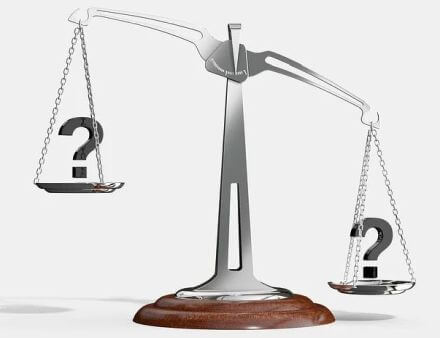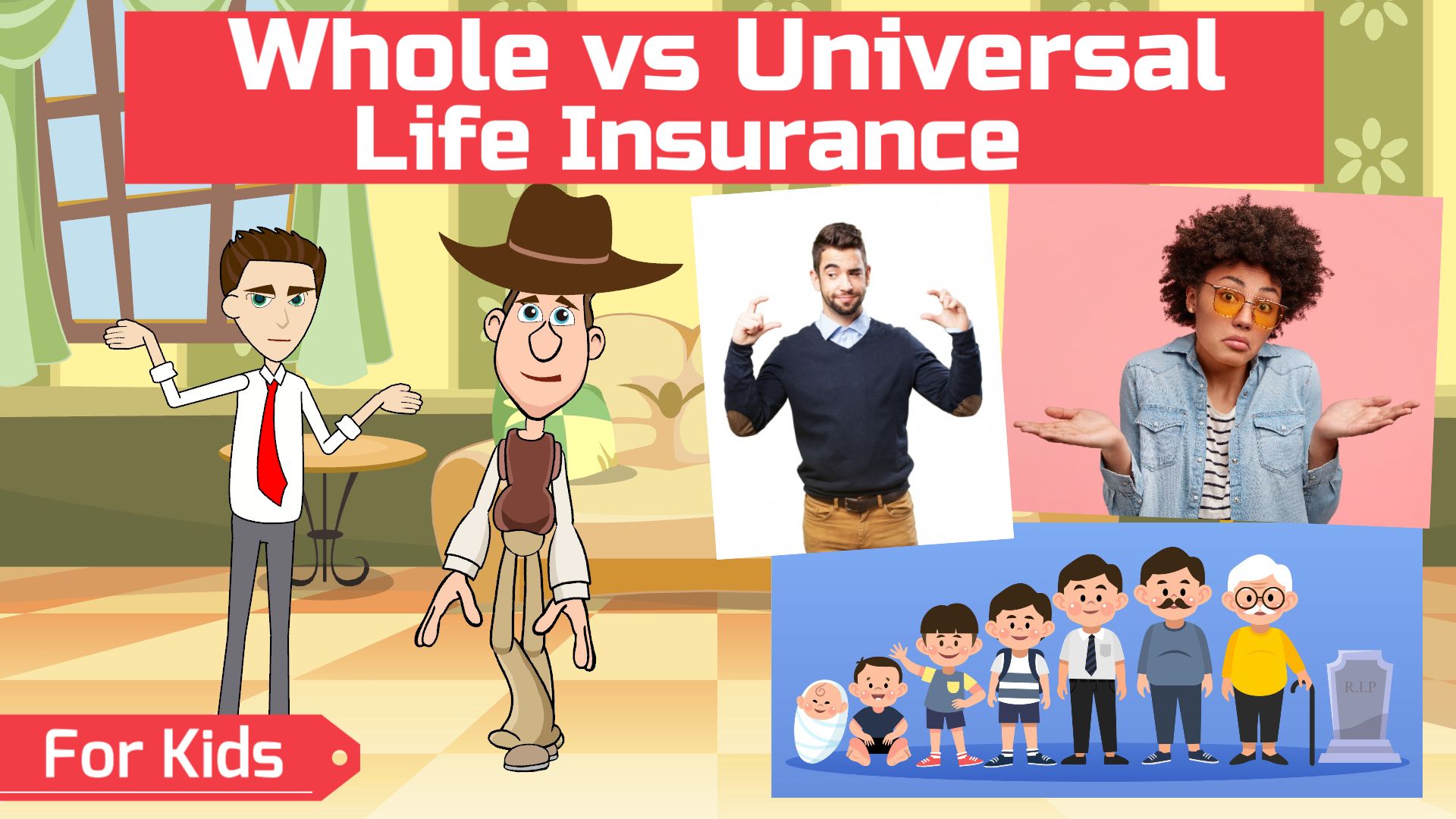Whole vs Universal Life Insurance Comparison for Kids and Teens
This video performs a whole vs universal life insurance comparison in a simple, concise way for kids and beginners. It could be used by kids & teens to learn about whole life insurance and universal life insurance, or used as a money & personal finance resource by parents and teachers as part of a Financial Literacy course or K-12 curriculum.

Suitable for students from grade levels:
- Kindergarten
- Elementary School
- Middle School
- High School
The topics covered are:
- How are whole life insurance and universal life insurance different
- Whole vs universal life insurance: How do the premiums compare
- Is the cash value growth guaranteed
- Do whole life insurance and universal life insurance offer any flexibility
- Other distinguishing features
- Whole vs Universal Life Insurance: Which is better
How are whole life insurance and universal life insurance different?

Let’s first understand what each of them is.
Both whole life insurance and universal life insurance are types of permanent life insurance that last for someone’s entire life.
In addition to the death benefit, they also have a savings component, called cash value, where money grows on a tax-advantaged basis.
The main differences between these two types of life insurance lie in their cost, flexibility, and benefits.
How do the premiums compare? And, is the cash value growth guaranteed?
For permanent life insurance, universal life insurance is much more affordable than whole life insurance.
This is because whole life insurance guarantees that the premium stays the same throughout the life of the policyholder, and the cash value grows at a guaranteed rate.
For universal life insurance, the premium goes up over time. The cash value growth is determined by market performance, and the minimum guaranteed rate is lower than that for whole life insurance.
Whole vs universal life insurance: Flexibility offered
Whole life insurance doesn’t allow any changes to the premium or the death benefit.
However, universal life insurance offers a lot of flexibility. There is generally a range for premiums, which allows people to pay just the minimum, or pay more to increase the cash value.
It also allows the death benefit to be changed, if the policy holder so desires.

Are there any other distinguishing features?
Both universal and whole life insurance set aside a part of the premium as the policy’s cash value. This cash value can be accessed by the policyholder during their lifetime as withdrawals or loans, as needed.
Any withdrawals or unpaid loans reduce the death benefit.
However, universal life insurance also allows the cash value to be used to pay premiums without impacting the death benefit.
Whole vs universal life insurance: Which is better
For someone seeking permanent life insurance, universal life insurance is clearly the more affordable and flexible option.
However, a key selling point used to justify the high premiums of permanent life insurance is the cash value, but the beneficiaries do not receive the cash value – it goes back to the insurance company when the policyholder dies!
Therefore, the best option for most people is to buy term life insurance for a duration chosen after careful consideration of their dependents’ financial situation.

One popular strategy is “buy term and invest the difference”, where you buy term life insurance instead of universal or whole life insurance, and invest the money saved in premiums.
This way, not only will you pay less for the insurance, but you will also be able to invest on your terms to maximize returns.
Whole vs universal life insurance: Conclusion
Do you have whole life insurance or universal life insurance? Or you’ve opted for term life insurance?
Please let us know through the comments below.
Download Transcript: Ideal for Use by Teachers in their Lesson Plan to Teach Kids & Teens
Podcast: Whole vs Universal Life Insurance
Fun, informative and concise episodes by a 10-year old, breaking down complex financial concepts in a way that kids and beginners can understand. Episodes cover personal finance topics like saving, investing, banking, credit cards, insurance, real estate, mortgage, retirement planning, 401k, stocks, bonds, income tax, and more, and are in the form of a conversation between a cowboy (a finance novice) and his friend, a stock broker. Making finance your friend, only at Easy Peasy Finance.
A little bit about me: I have been fascinated with the world of personal finance since I was 6! I love to read personal finance books, and keep myself updated on the latest by reading various personal finance magazines. My friends often ask me questions about finance because they find it complex and intimidating. That’s what inspired me to start my YouTube channel called Easy Peasy Finance when I was 8, and this podcast 2 years later.
A comprehensive comparison – whole vs universal life insurance: How are whole life insurance and universal life insurance different, How do the premiums compare, Is the cash value growth guaranteed, Do whole life insurance and universal life insurance offer any flexibility, Other distinguishing features, Which is better: universal life insurance or whole life insurance, and …


